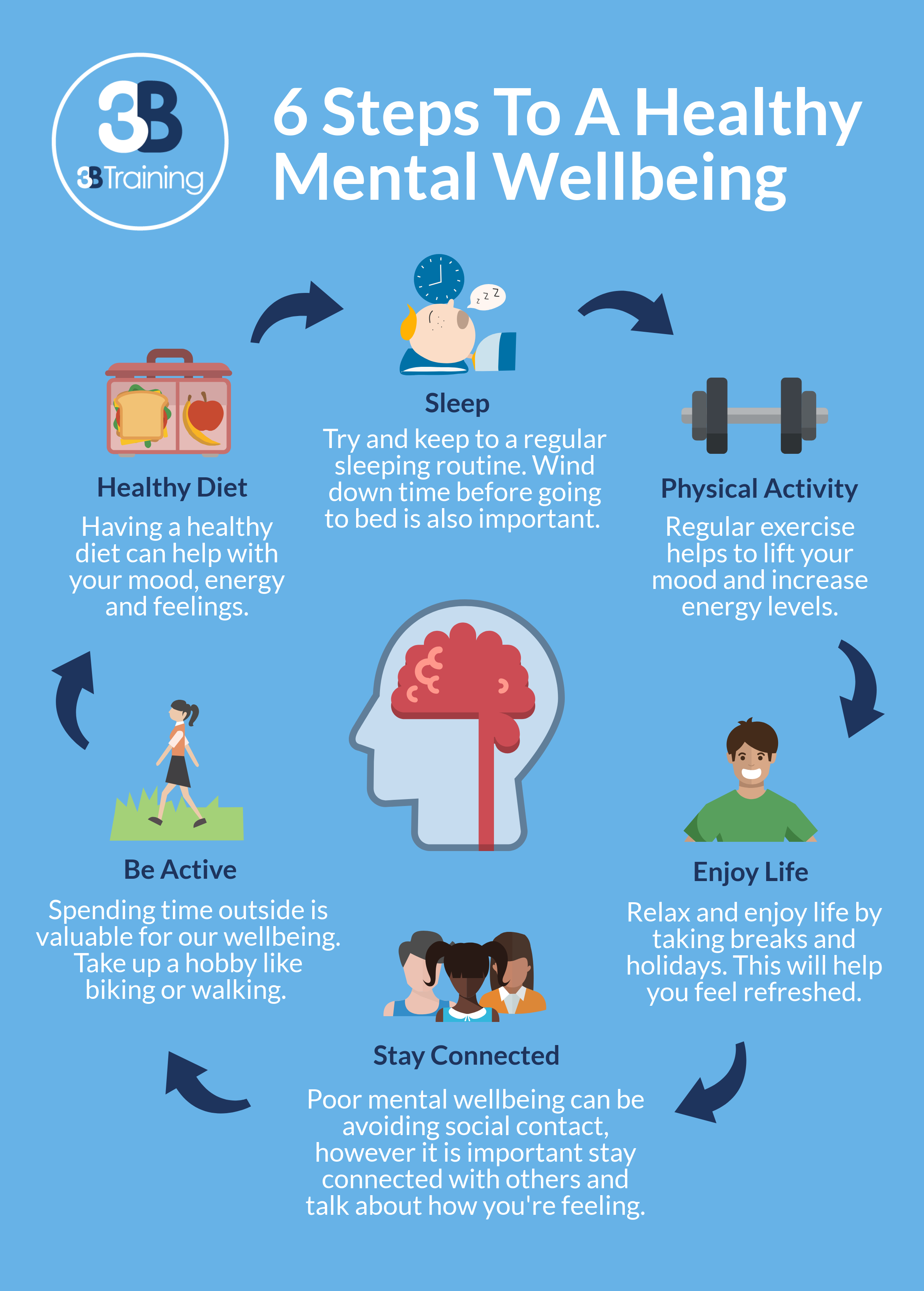Promoting Mental Wellness: 5 Steps To Greater Community Acceptance

Table of Contents
Educate Your Community About Mental Health
Education is paramount in reducing the stigma surrounding mental health and fostering understanding. When people are informed, they're better equipped to offer support, challenge misconceptions, and advocate for change. Effective mental health education can significantly improve community awareness and acceptance. Here are some crucial avenues for spreading knowledge:
- Workshops and Seminars: Organize workshops and seminars led by mental health professionals to educate community members about various mental health conditions, their symptoms, and available treatments.
- Public Awareness Campaigns: Launch impactful public awareness campaigns utilizing social media platforms, local newspapers, community newsletters, and events. Use compelling visuals and easy-to-understand language to reach a wider audience. Consider partnering with local radio stations for public service announcements.
- Collaboration with Schools and Organizations: Partner with local schools, community centers, and organizations to integrate mental health education into their existing programs. This ensures that young people and adults receive vital information early on.
- Sharing Personal Stories (with Consent): Nothing humanizes mental health challenges like hearing personal stories. With proper consent, sharing narratives can help break down stigma and build empathy within the community.
Promote Open and Honest Conversations About Mental Health
Open dialogue is the lifeblood of overcoming barriers and fostering empathy. When we normalize conversations about mental health, we create safe spaces where individuals feel comfortable sharing their experiences without fear of judgment. This openness is crucial for destigmatizing mental health and improving community support.
- Active Listening: Practice active listening, creating a space where individuals feel heard and understood. Avoid interrupting or offering unsolicited advice.
- Inclusive Language: Use inclusive language that avoids stigmatizing terms or stereotypes. Focus on person-first language (e.g., "person with depression" instead of "depressed person").
- Normalizing Discussions: Make mental health a regular topic of conversation in everyday settings. This helps to destigmatize mental illness and encourages others to seek help.
- Highlighting Help-Seeking: Emphasize the importance of seeking professional help when needed. Normalize help-seeking as a sign of strength, not weakness.
Advocate for Accessible and Affordable Mental Healthcare
Accessible and affordable mental healthcare is the cornerstone of a supportive community. Many individuals face significant barriers to accessing the care they need, including high costs, limited availability of mental health professionals, and lack of insurance coverage. Advocating for improved access is critical for enhancing community mental health.
- Increased Funding: Advocate for increased government funding for mental health programs and services. This is essential to expand access to care and reduce wait times.
- More Professionals: Support initiatives to train and recruit more mental health professionals, particularly in underserved areas.
- Removing Barriers: Work towards removing barriers to accessing care, such as ensuring adequate insurance coverage, providing transportation assistance, and reducing administrative hurdles.
- Telehealth Expansion: Promote the use of telehealth options to expand access to care, particularly for individuals in remote areas or those with mobility limitations.
Create Supportive and Inclusive Community Spaces
Supportive and inclusive communities play a vital role in improving mental wellness and reducing feelings of isolation. When individuals feel connected, accepted, and understood, their mental health improves. Creating such spaces is a collective responsibility.
- Peer Support Groups: Establish and support peer support groups and social clubs where individuals can connect with others facing similar challenges.
- Community Events: Organize community events focused on connection, well-being, and promoting positive mental health. These could include workshops, recreational activities, or social gatherings.
- Inclusive Policies: Advocate for inclusive policies in workplaces and schools that prioritize mental health and well-being. This includes providing mental health days and creating a supportive work environment.
- Accessible Resources: Ensure readily accessible resources for individuals struggling with mental health, including information, support groups, and crisis hotlines.
Challenge the Stigma Associated with Mental Illness
The stigma surrounding mental illness is a significant barrier to help-seeking. It perpetuates misconceptions, fosters discrimination, and prevents individuals from seeking the support they need. Challenging stigma requires a multi-pronged approach.
- Positive Media Representation: Advocate for more positive and accurate representations of mental health in media and popular culture.
- Challenging Stereotypes: Actively challenge negative stereotypes and misconceptions about mental illness through education and open conversations.
- Social Media Awareness: Utilize social media to spread awareness, promote positive messages, and share resources.
- Empathy and Understanding: Encourage empathy and understanding through personal stories and testimonials (with consent).
Promoting Mental Wellness – A Call to Action
Promoting mental wellness requires a collective effort. By implementing the five steps outlined – educating our communities, promoting open dialogue, advocating for accessible healthcare, creating inclusive spaces, and challenging stigma – we can build a more supportive and accepting environment for everyone. Start promoting mental wellness in your community today by taking one of the steps outlined above. Together, we can improve community mental health, foster mental wellness acceptance, and build a brighter future for all.

Featured Posts
-
 Ahead Computings 21 5 M Seed Funding Fueling Future Growth
May 02, 2025
Ahead Computings 21 5 M Seed Funding Fueling Future Growth
May 02, 2025 -
 Alle Ergebnisse Lotto 6aus49 Vom 12 April 2025
May 02, 2025
Alle Ergebnisse Lotto 6aus49 Vom 12 April 2025
May 02, 2025 -
 Kate And Lila Mosss Identical Lbds Steal The Show At London Fashion Week
May 02, 2025
Kate And Lila Mosss Identical Lbds Steal The Show At London Fashion Week
May 02, 2025 -
 Negan Joins Fortnite Jeffrey Dean Morgan Talks Character And Gameplay
May 02, 2025
Negan Joins Fortnite Jeffrey Dean Morgan Talks Character And Gameplay
May 02, 2025 -
 Is Betting On Natural Disasters Like The Los Angeles Wildfires The New Normal
May 02, 2025
Is Betting On Natural Disasters Like The Los Angeles Wildfires The New Normal
May 02, 2025
Latest Posts
-
 Farage Accused Of Far Right Links Heated Exchange With Teaching Union
May 03, 2025
Farage Accused Of Far Right Links Heated Exchange With Teaching Union
May 03, 2025 -
 Loi Sur Les Partis Politiques En Algerie Impact De La Reforme Sur Le Pt Ffs Rcd Et Jil Jadid
May 03, 2025
Loi Sur Les Partis Politiques En Algerie Impact De La Reforme Sur Le Pt Ffs Rcd Et Jil Jadid
May 03, 2025 -
 Gobierno Entrega Siete Vehiculos Al Sistema Penitenciario
May 03, 2025
Gobierno Entrega Siete Vehiculos Al Sistema Penitenciario
May 03, 2025 -
 Siete Vehiculos Nuevos Refuerzan La Seguridad Del Sistema Penitenciario
May 03, 2025
Siete Vehiculos Nuevos Refuerzan La Seguridad Del Sistema Penitenciario
May 03, 2025 -
 Aljbht Alwtnyt Amant Alastthmar Tkshf En Wrqt Syasat Aqtsadyt
May 03, 2025
Aljbht Alwtnyt Amant Alastthmar Tkshf En Wrqt Syasat Aqtsadyt
May 03, 2025
